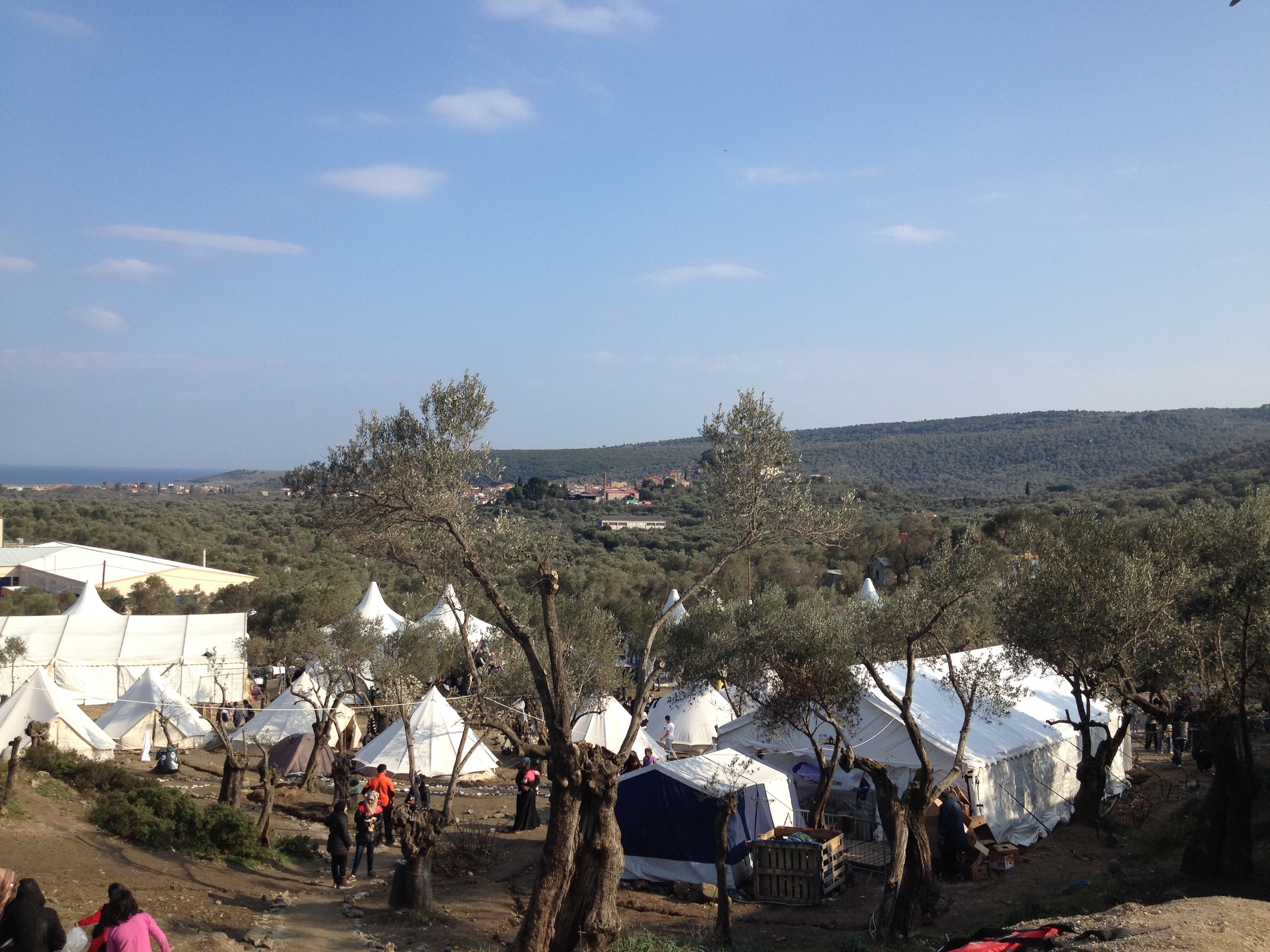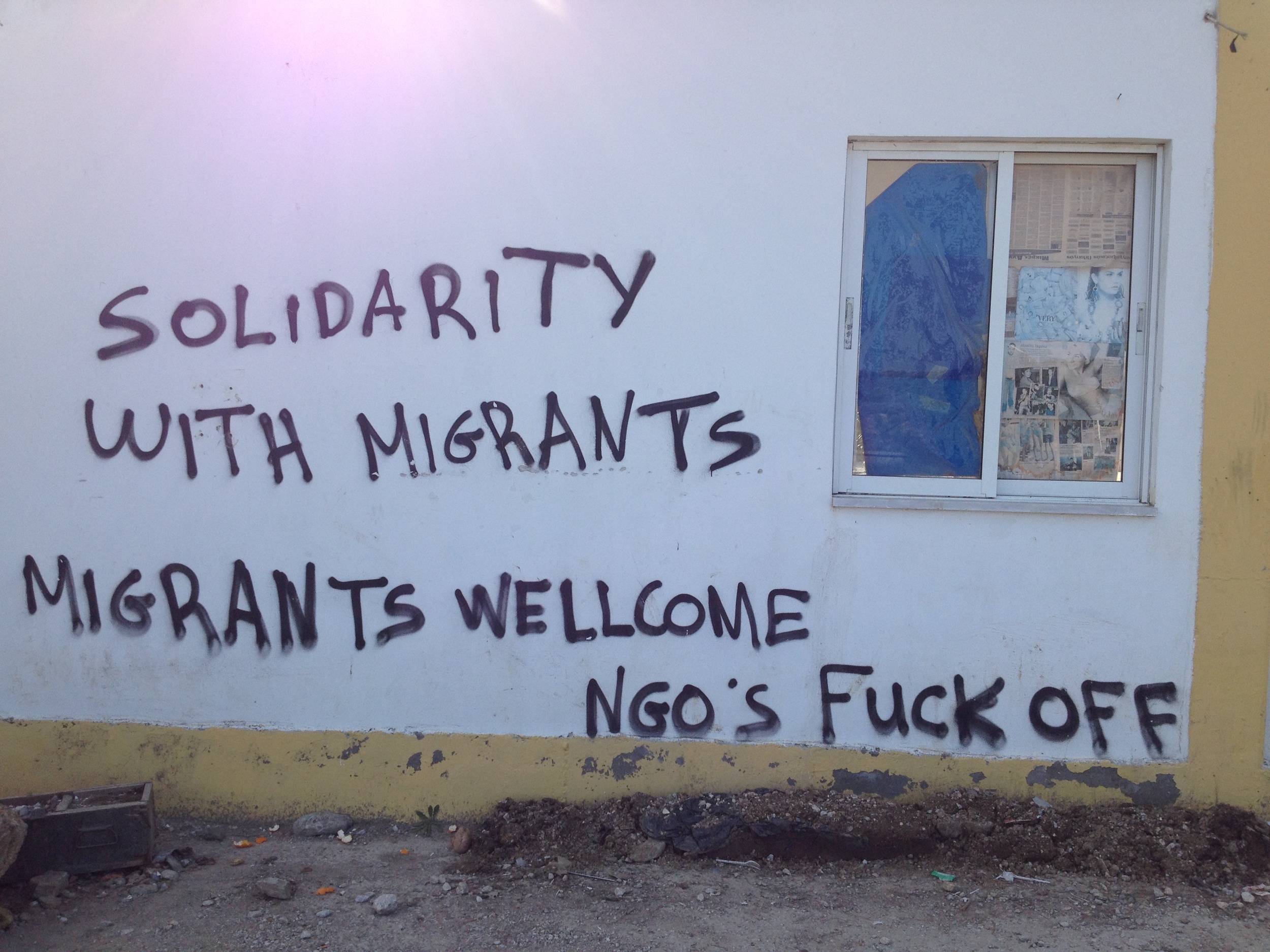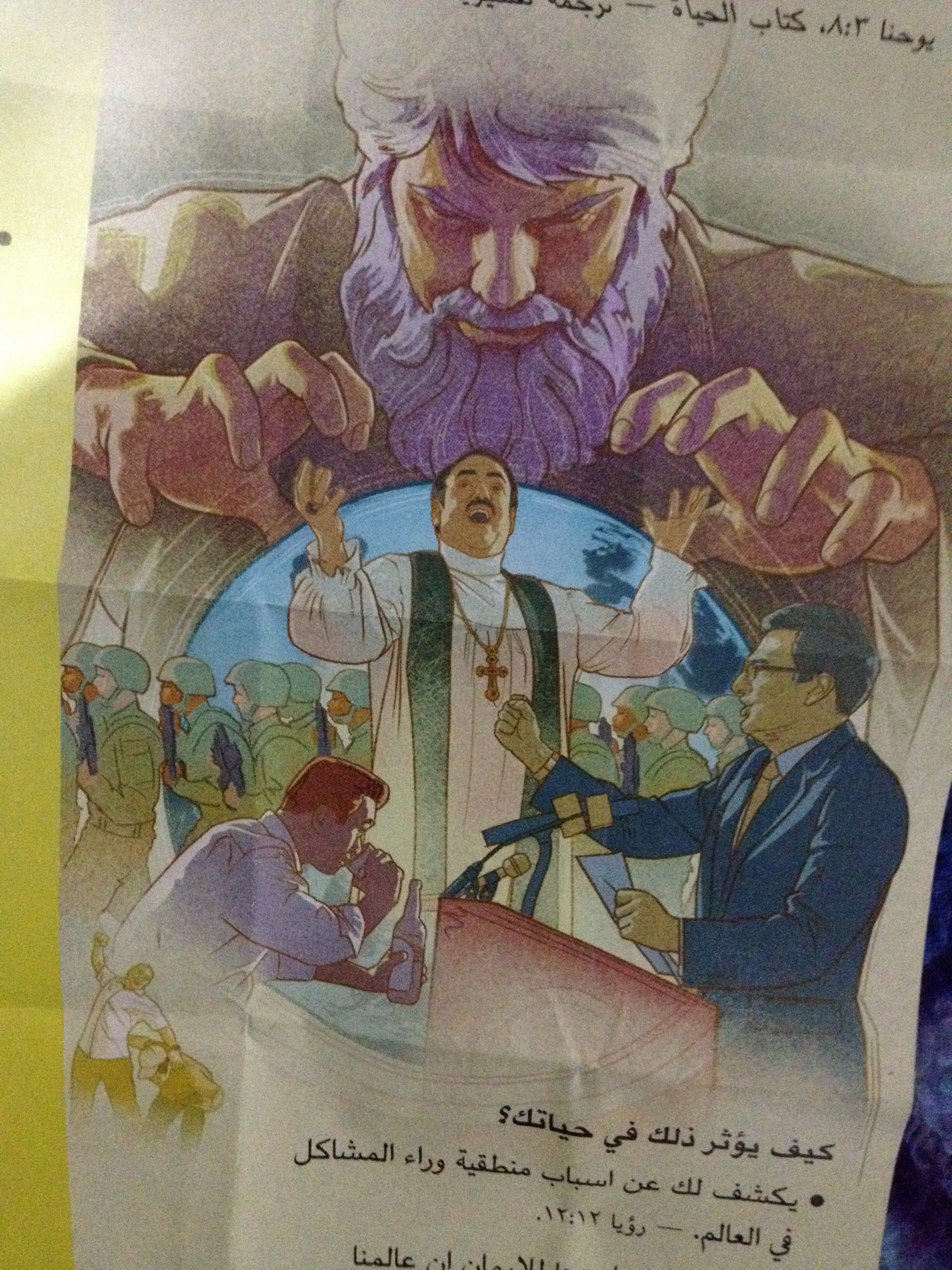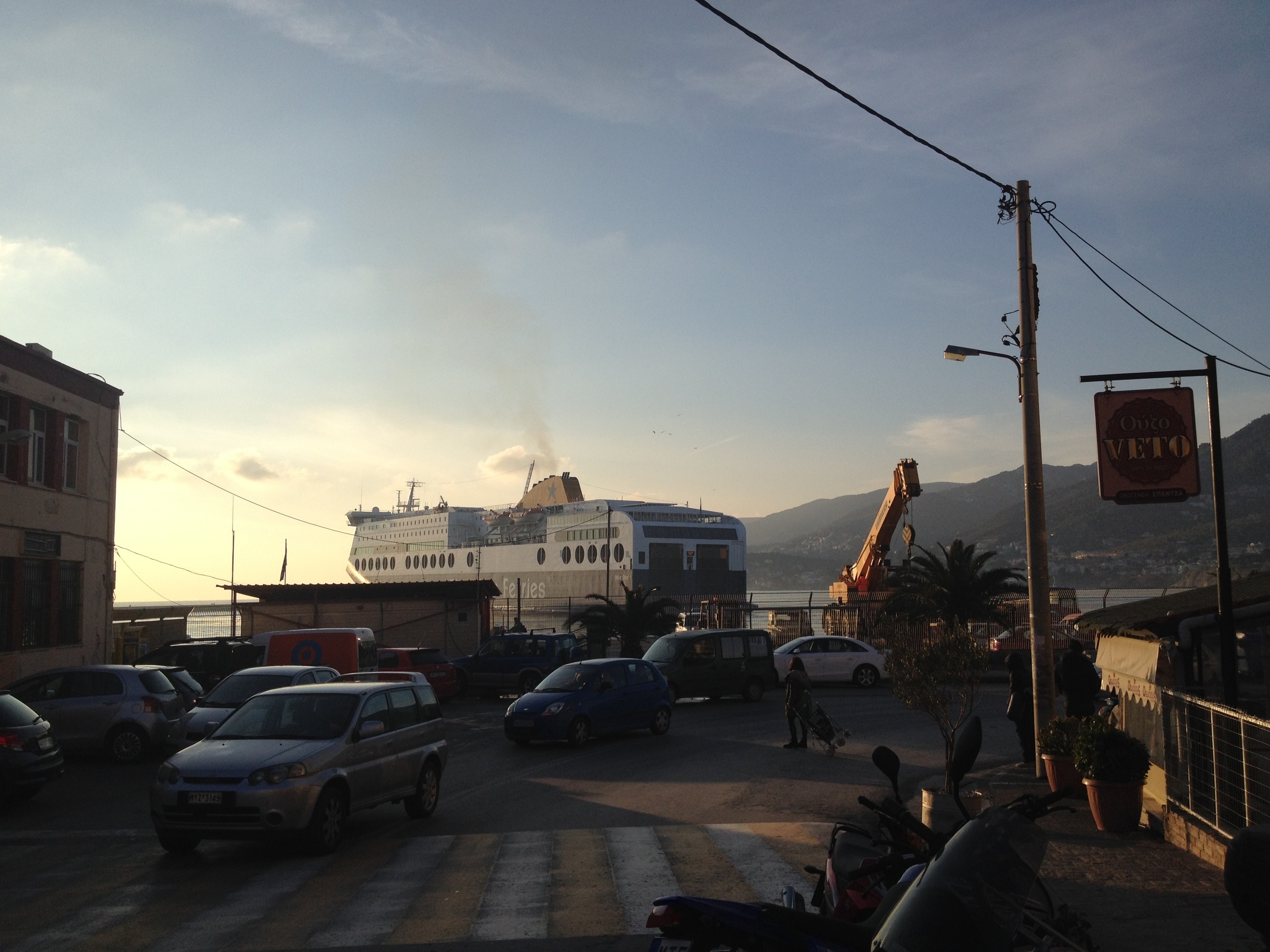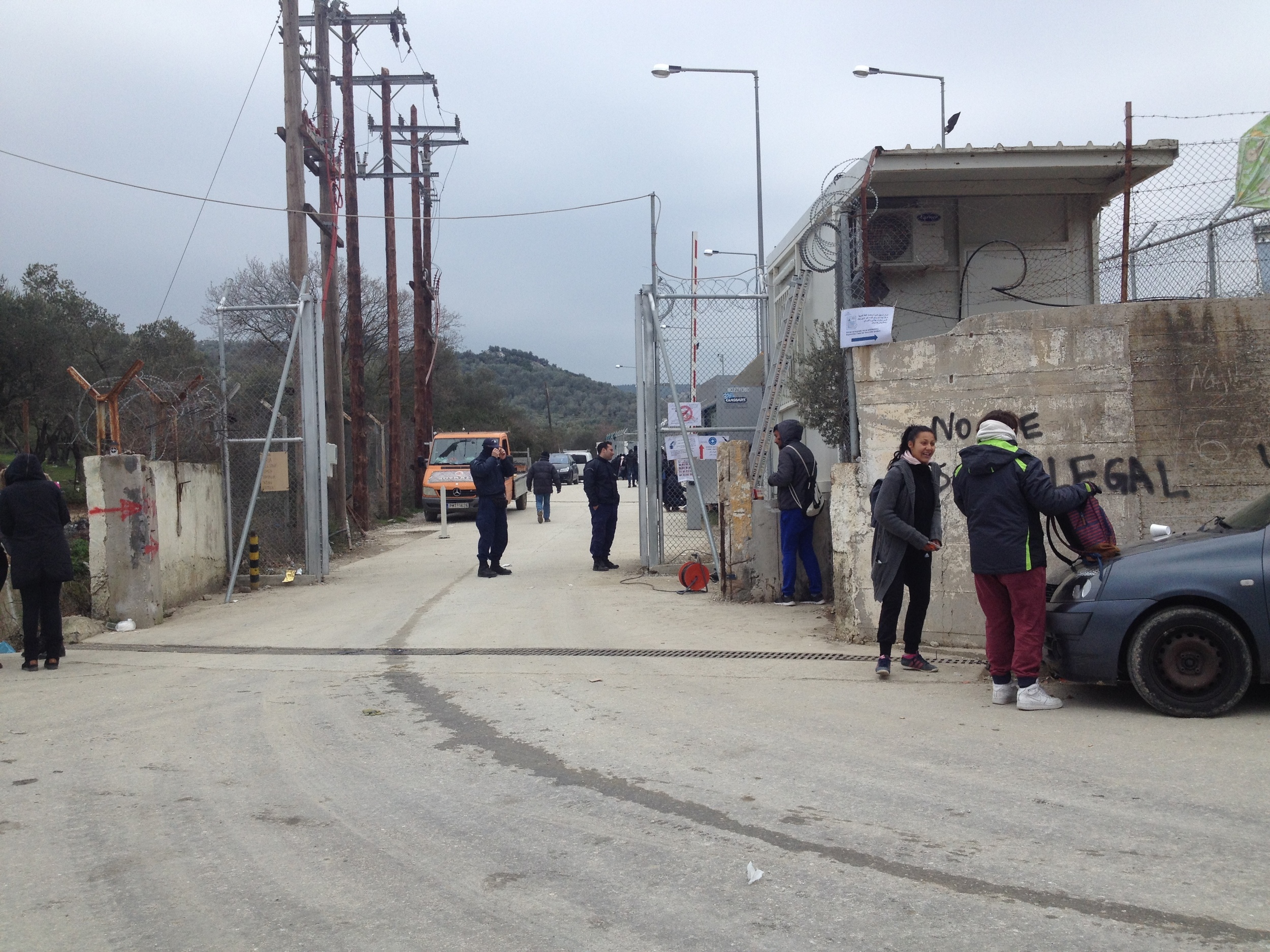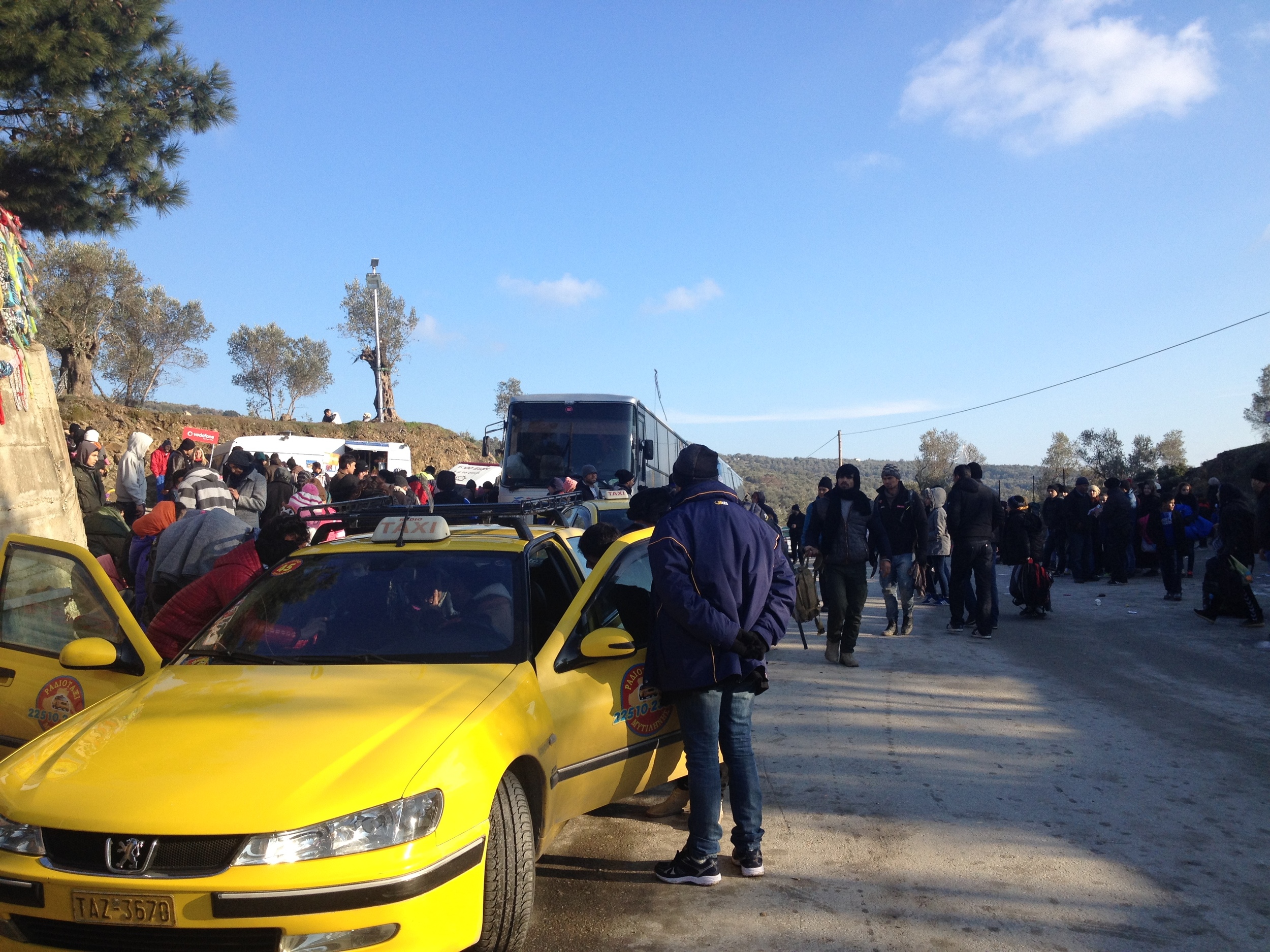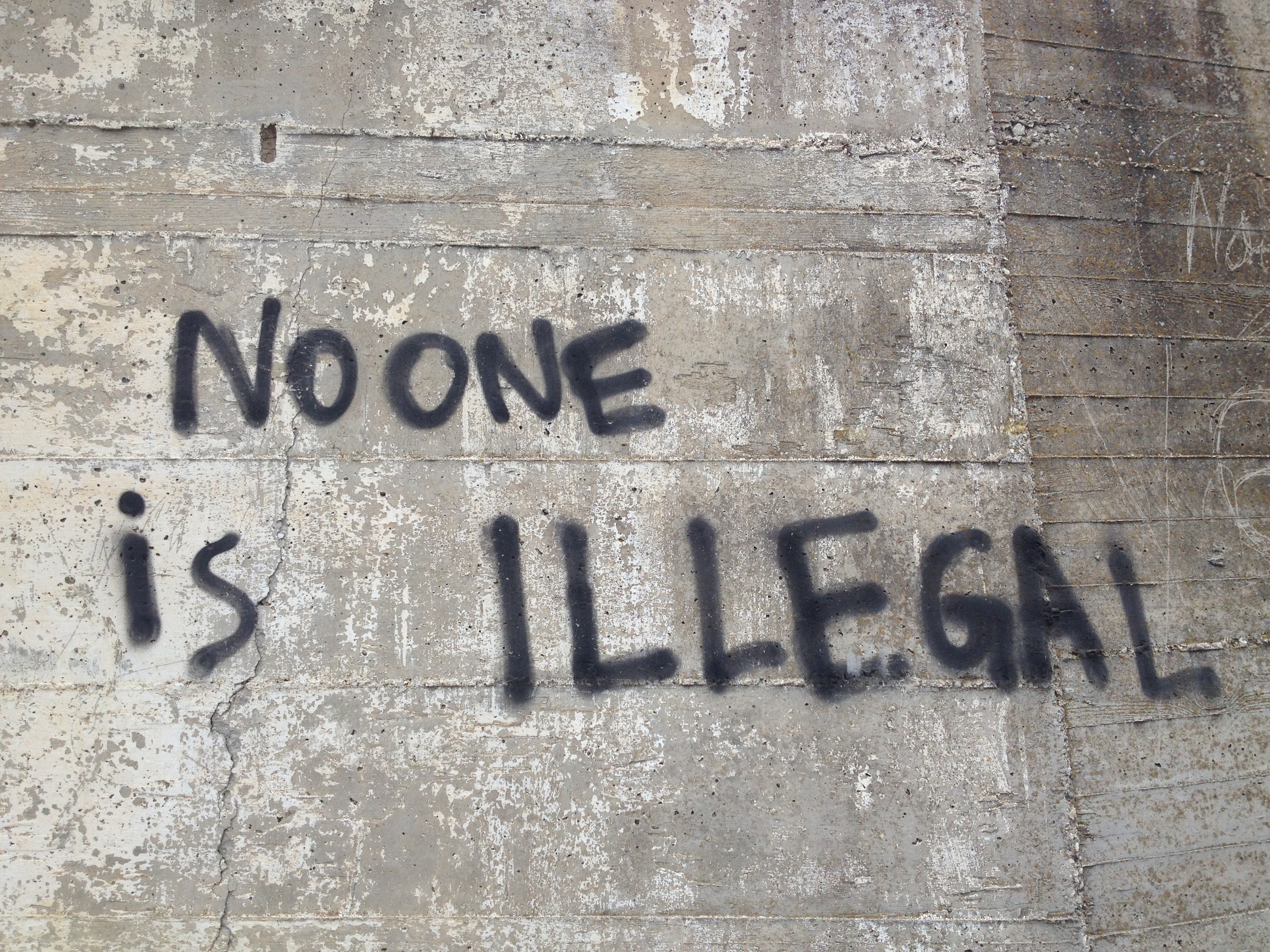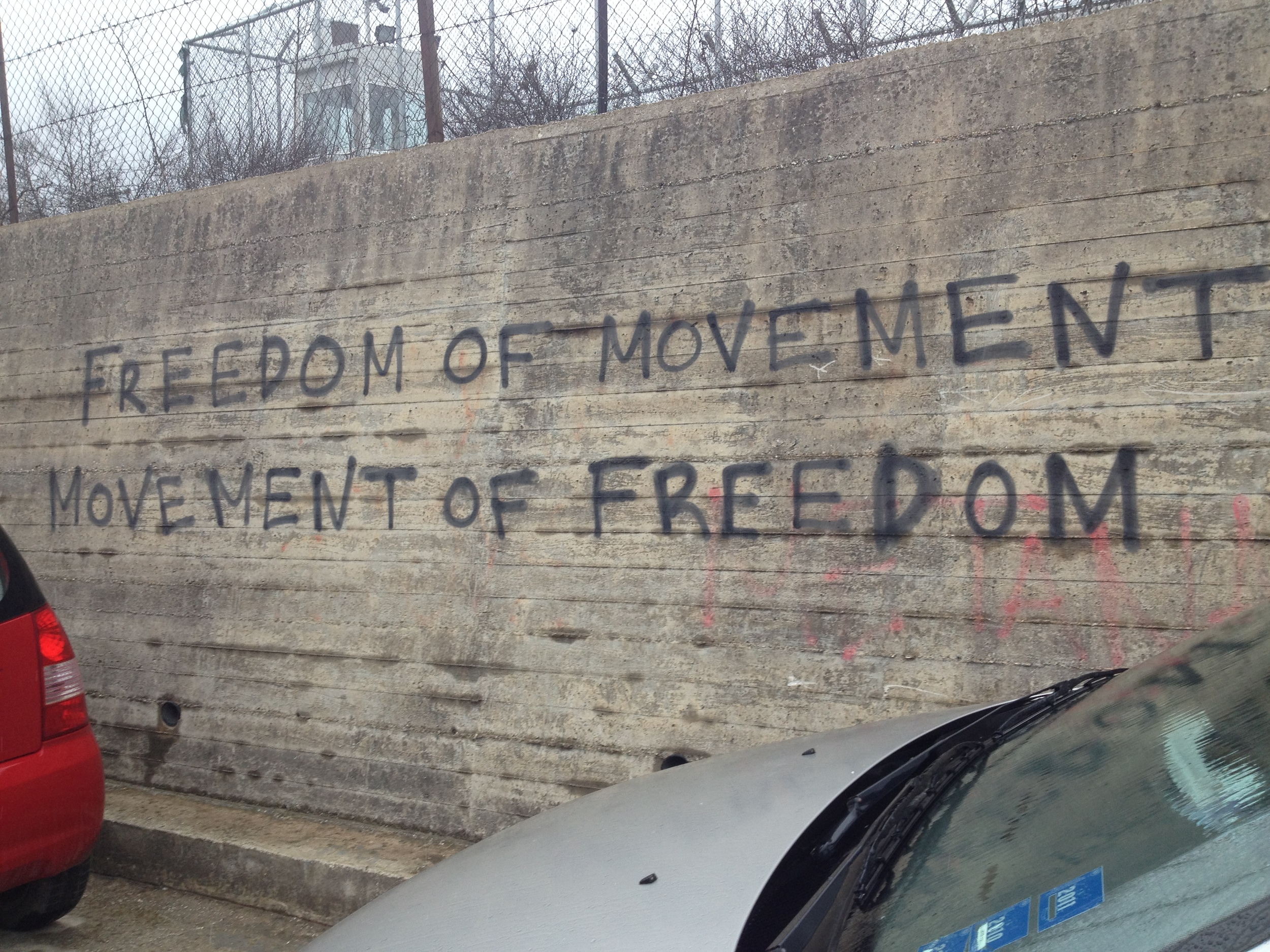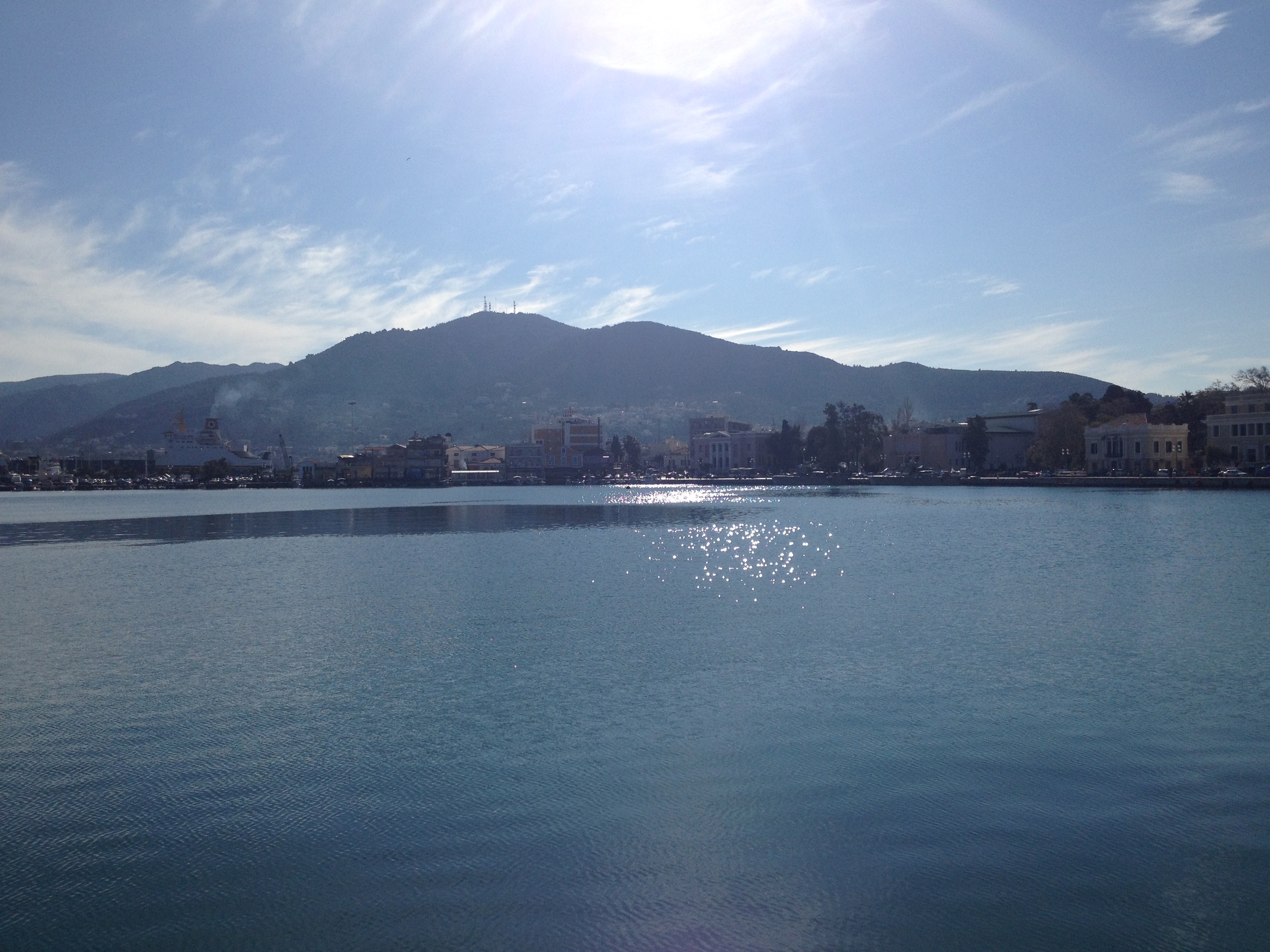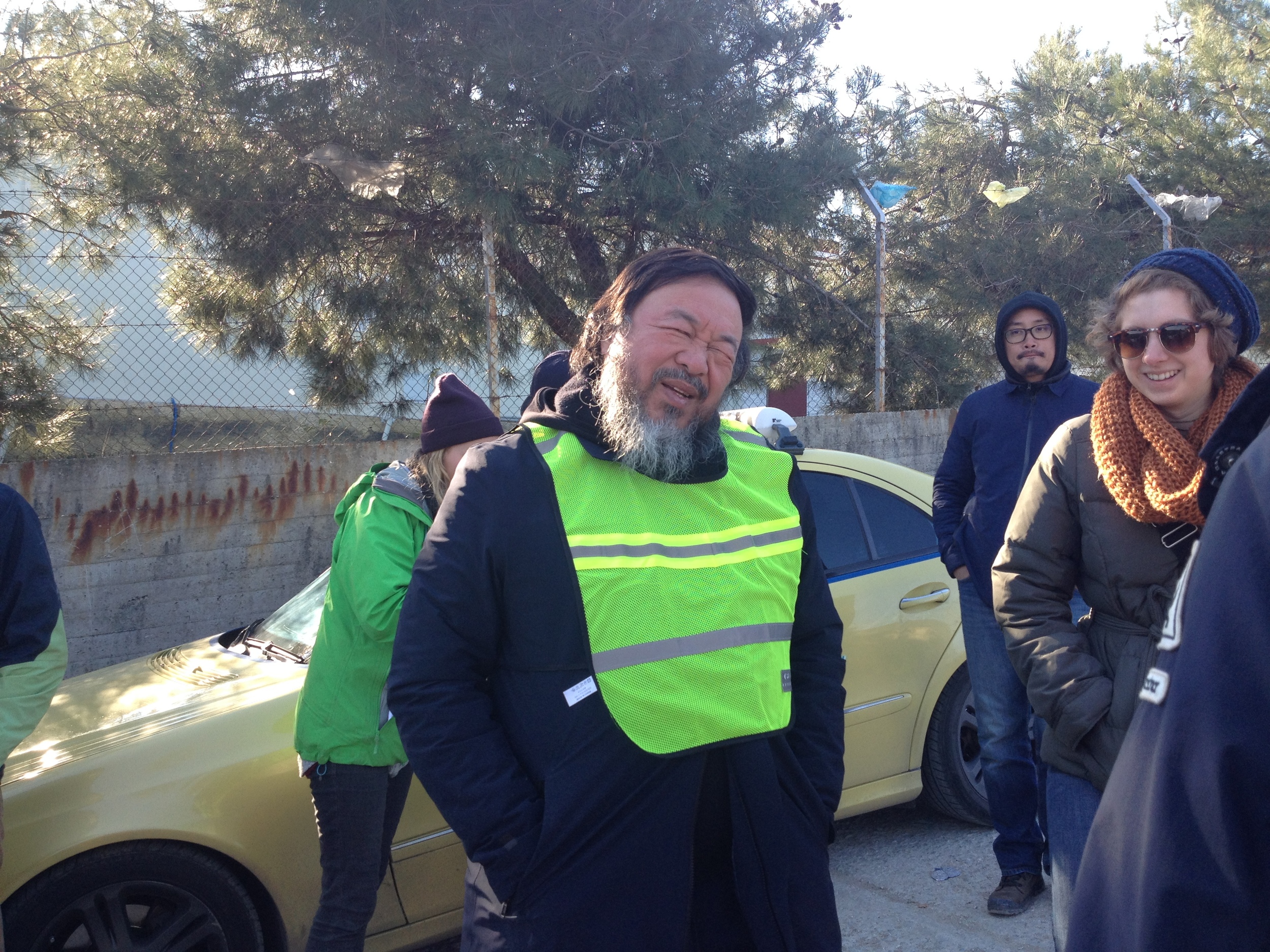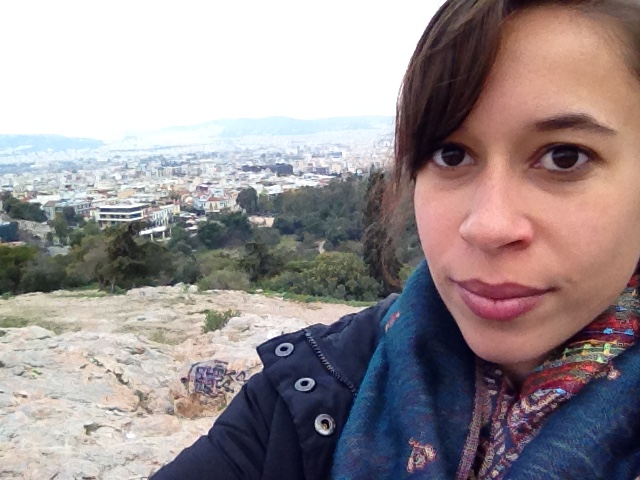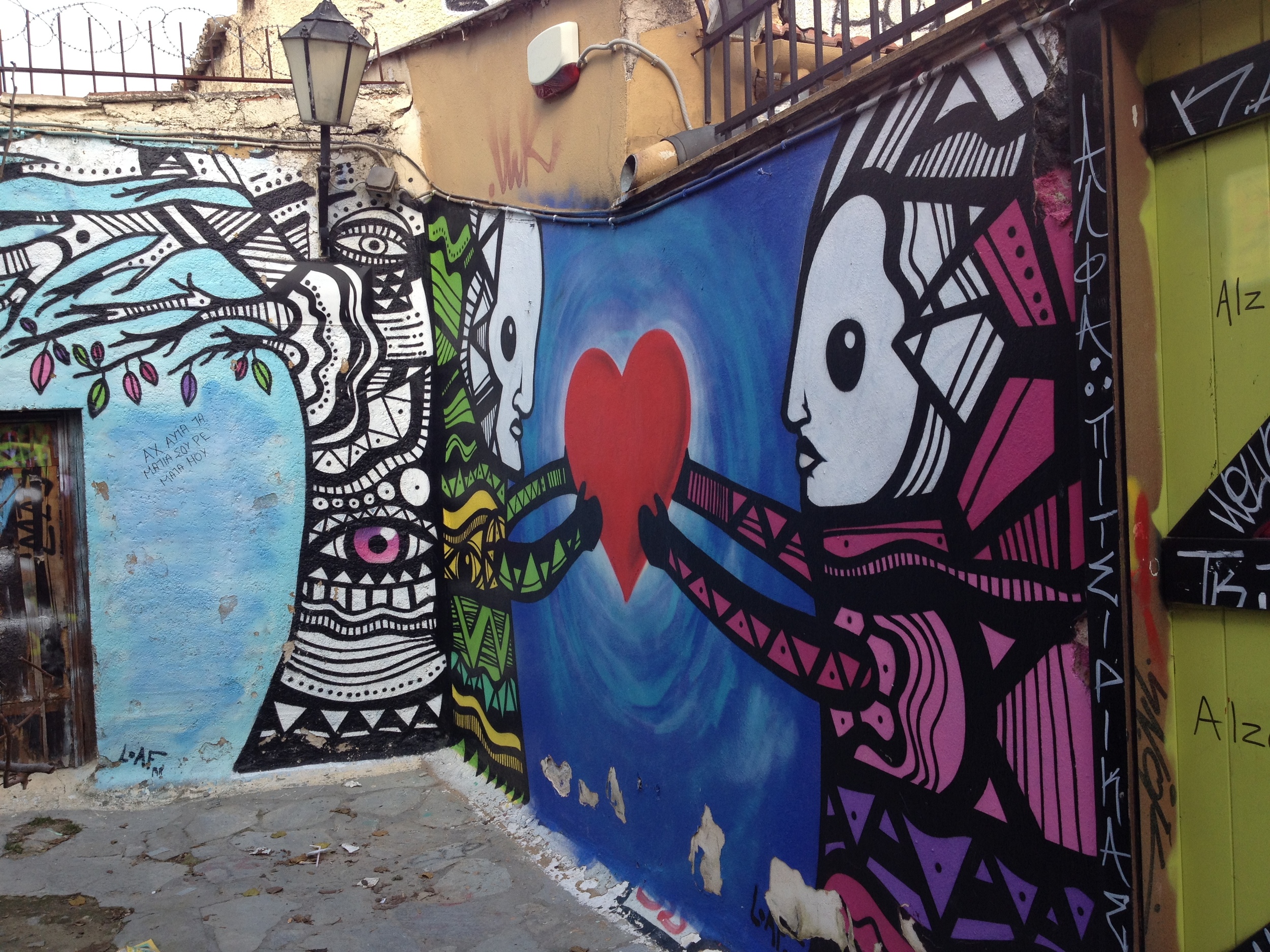my last day
My last day in the camp, working with Better Days for Moria was calm and lovely for the most part. The weather was bad, so we didn't have any boats coming in, and nearly the entire country of Greece was striking for better working conditions, so there also weren't any cab drivers, Vodafone salespeople, or even gypsies hanging around the camp. The weather was bleak, but a positive atmosphere hung in the air- or at least as positive as is possible given the situation. I spent the morning trying to be as productive as possible, while avoiding potentially stressful interactions. That meant I stayed hidden in the dry clothes tent, sorting new donations and repackaging shower soap into smaller bottles for hygiene packs. I had a nice conversation with another volunteer, Keith, from the UK. Keith and I agreed to take pictures of each other while we were sorting clothing and bottling soap so we'd have something to send back to our friends and families.
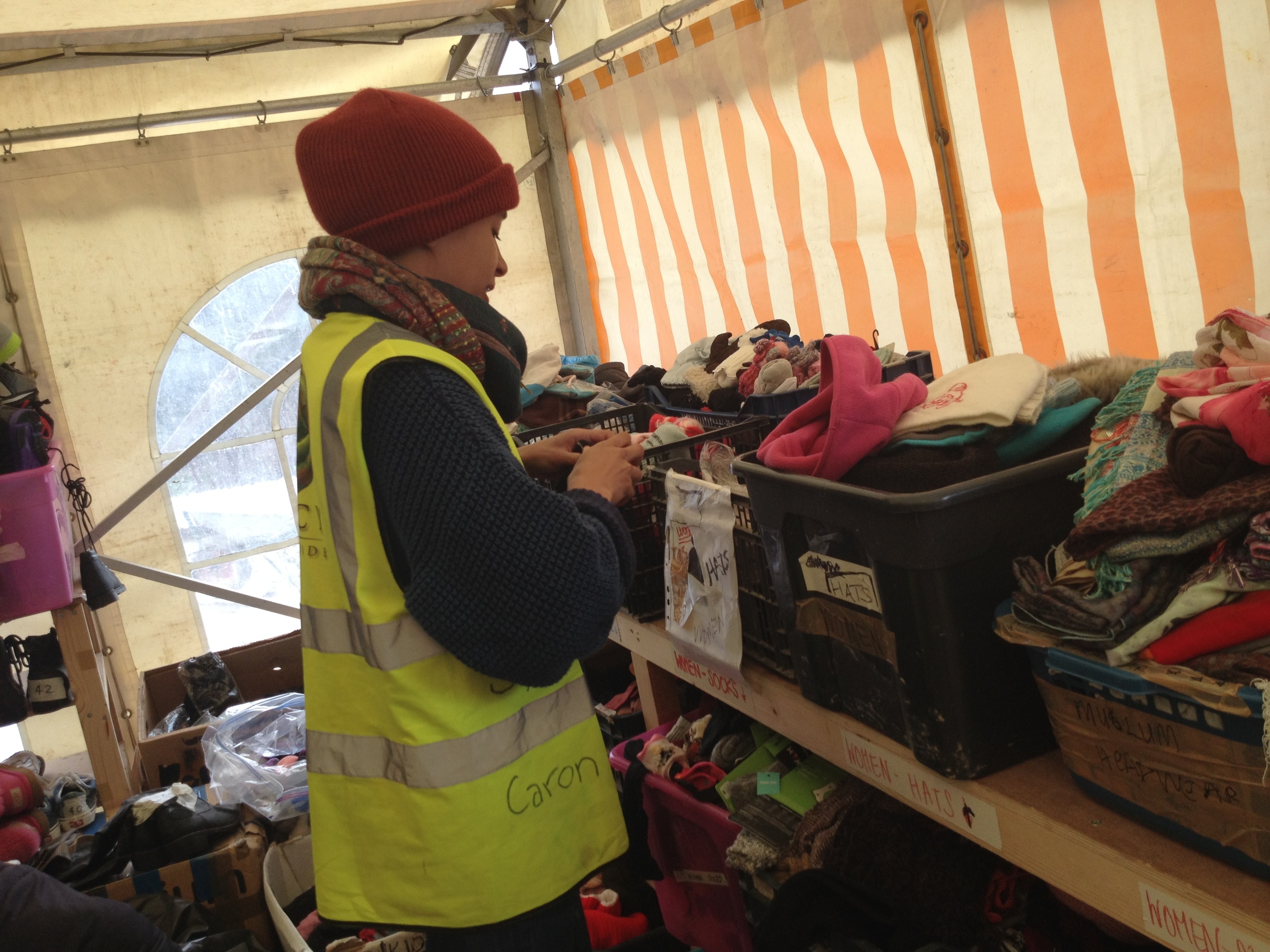
Lunch came sooner than I expected. It was the first day at Moria camp where I was actually disappointed it was lunch time, because I really didn't want my last full day to end. Lunch is always delicious. We have amazing volunteer cooks who create masterful vegan meals on a small budget for the volunteers. I feel the need to continually shower them with compliments. (Kudos!)
After lunch I found a fellow volunteer, Florian, and asked him for help. I asked him to give Adnan (the Pakistani refugee who bought me a present and confessed his love for me) a gift of fifty euro to repay him for the gift he'd given me. For one, I'd hoped that repaying him for the gift would at least help me feel less guilty for how the situation had played out, but I also really just didn't want to take money away from someone who really needs it. I gave Florian the money and told him my stipulation that Adnan must not suspect that the money is from me. I wanted Florian to give it to him under the guise that it was a gift, unrelated to the awkward situation Adnan had put me in. Florian happily agreed to help me out and said he'd give it to him when the time was right.
After my conversation with Florian I wandered around for a bit, half trying to find some work to do, half just taking pictures and trying to preserve an image of the Better Days for Moria camp in my mind. While I was doing this, I ran into Adnan. He asked to speak with me and wanted me to walk down the road with him a bit. I told him I'd be happy to talk with him, but said I'd rather not walk anywhere.
“You don't trust me,” Replied Adnan.
“No, that's not it at all.” I said, flustered. “I'm just comfortable here. I don't see why we can't just talk here.”
Part of me knew that this situation had the potential to be far more dramatic if we moved to a more isolated location, so I wanted to diffuse that as much as possible by keeping us in plain view of the rest of the camp.
To that he replied: “You don't trust me. You think I'm a terrorist.”
Suppressing an eye roll, I denied his accusation.
“That's really not it,” I said. “Why don't we just talk here?”
After a moment's pause, Adnan began. He asked me for my phone number. He wanted to call me in California, just to hear my voice. I told him no. I didn't want to do that, and that even if I was okay with it, it was impossible because my phone can't accept or make international phone calls.
“I have a boyfriend,” I said. Trying to give the lightest, yet firmest rejection possible.
“I just want to call you,” he said.
“No,” I said. “I wouldn't feel comfortable doing that.”
After a brief pause, Adnan then went on to ask me for a memento. He wanted me to give him something of mine. Even the hair tie on my wrist. When I refused, he just continued to repeat his request.
“Please,” he said. “Give me anything.”
“No,” I replied. “I don't feel comfortable doing that. I have a boyfriend and I'm leaving tomorrow and you need to move on.”
“Please,” he said, “please, please.”
Simultaneously begging and making me feel guiltier by the moment for rejecting his request.
“No,” I said. “I'm going to walk away now.”
I turned and continued to walk up Afghan Hill, where I ran into Florian and another volunteer, Julian, who were digging trenches for drainage. We had a light conversation about ditch digging, and I was able to get my mind off of my depressing conversation with Adnan.
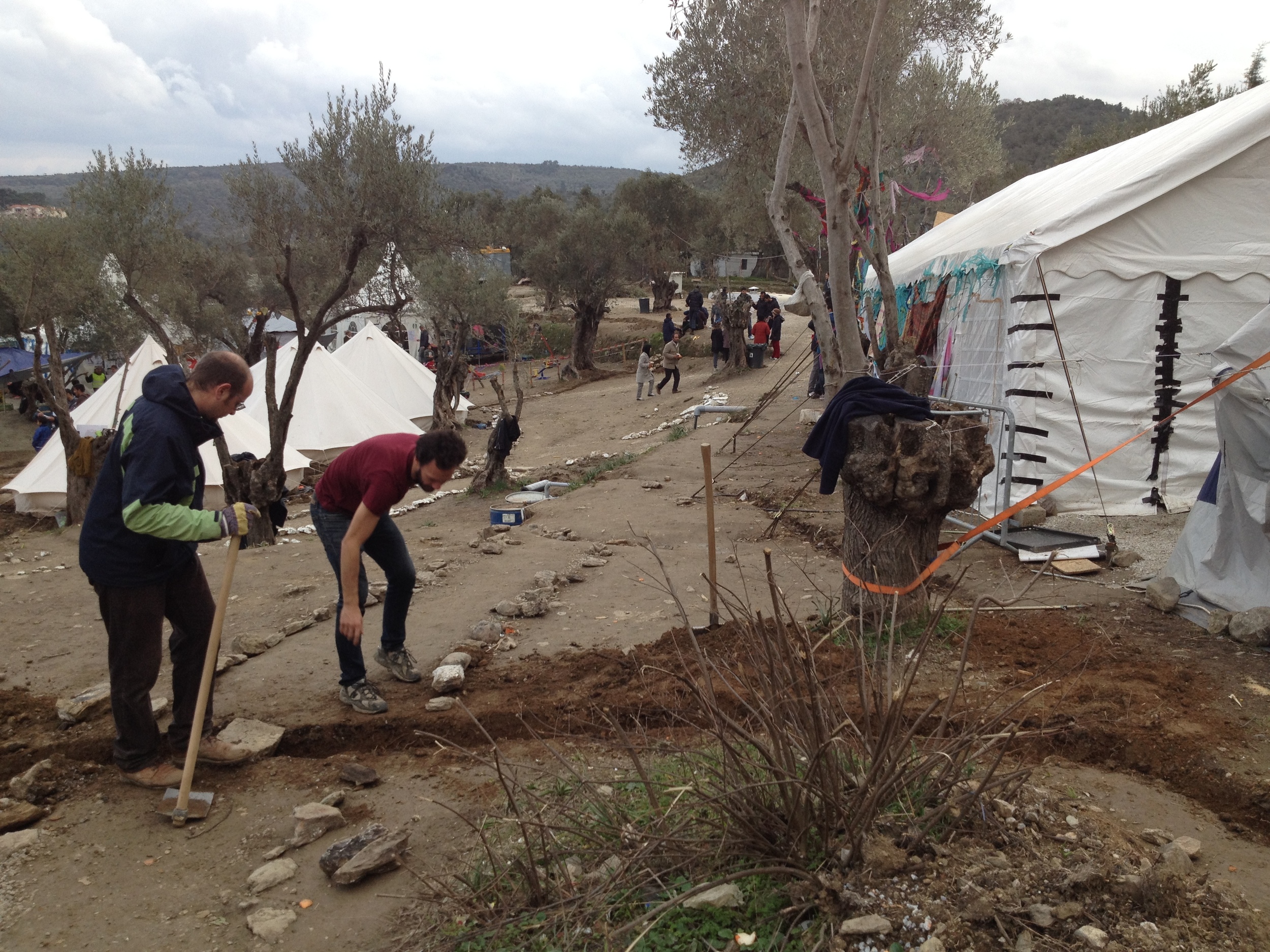
Later in the day, after giving a brief Arabic lesson to some of my fellow volunteers, I ran into Adnan again. He was still persistent. This time he asked to take a photo with me. Again I refused, citing my boyfriend and the fact that Adnan needed to move on.
“You're young,” I said. “You'll meet someone else. Trust me. It's better for you to move on.”
“I don't think so,” he said. “You're the first person that I've met that I feel this way about.”
Then he repeated his request for me to take a picture with him, continually repeating the word “please,” as if using it more would somehow change my mind. But I remained firm in my refusal. I knew it wouldn't be good for him to have anything to remember me by, and I really dislike the idea of someone pining for me from hundreds of miles away.
His pleading continued until I walked away.
Later that night I went out to dinner with a large group of volunteers. It was one volunteer's birthday, and several of us were leaving over the next couple of days, so we had a big celebration and farewell party. Somehow we found the only restaurant that was open during the general strike. When we first walked in with our group of about twenty, the restaurant owner looked concerned. He told us he was worried he didn't have enough food for all of us. But he somehow made it happen and I think it was clear that everyone was enjoying themselves. The owner even brought out a cake and performed some magic tricks for all of us. It was truly a great send off.
During dinner I spoke with Siobhan, a long term volunteer, about the situation with Adnan. She was able to help me feel less guilty about rejecting him and all of his requests. It was her opinion that he was trying to manipulate my feelings. I rejected that idea initially, but now I think Siobhan may have been right. Whether or not he intended to, Adnan was definitely manipulating my emotions and trying to guilt me into giving him what he wanted. Despite the infinitely awkward and sad situation that surrounded us, that analysis makes sense to me.
Siobhan told me not to feel bad for rejecting him.
I'm still trying.
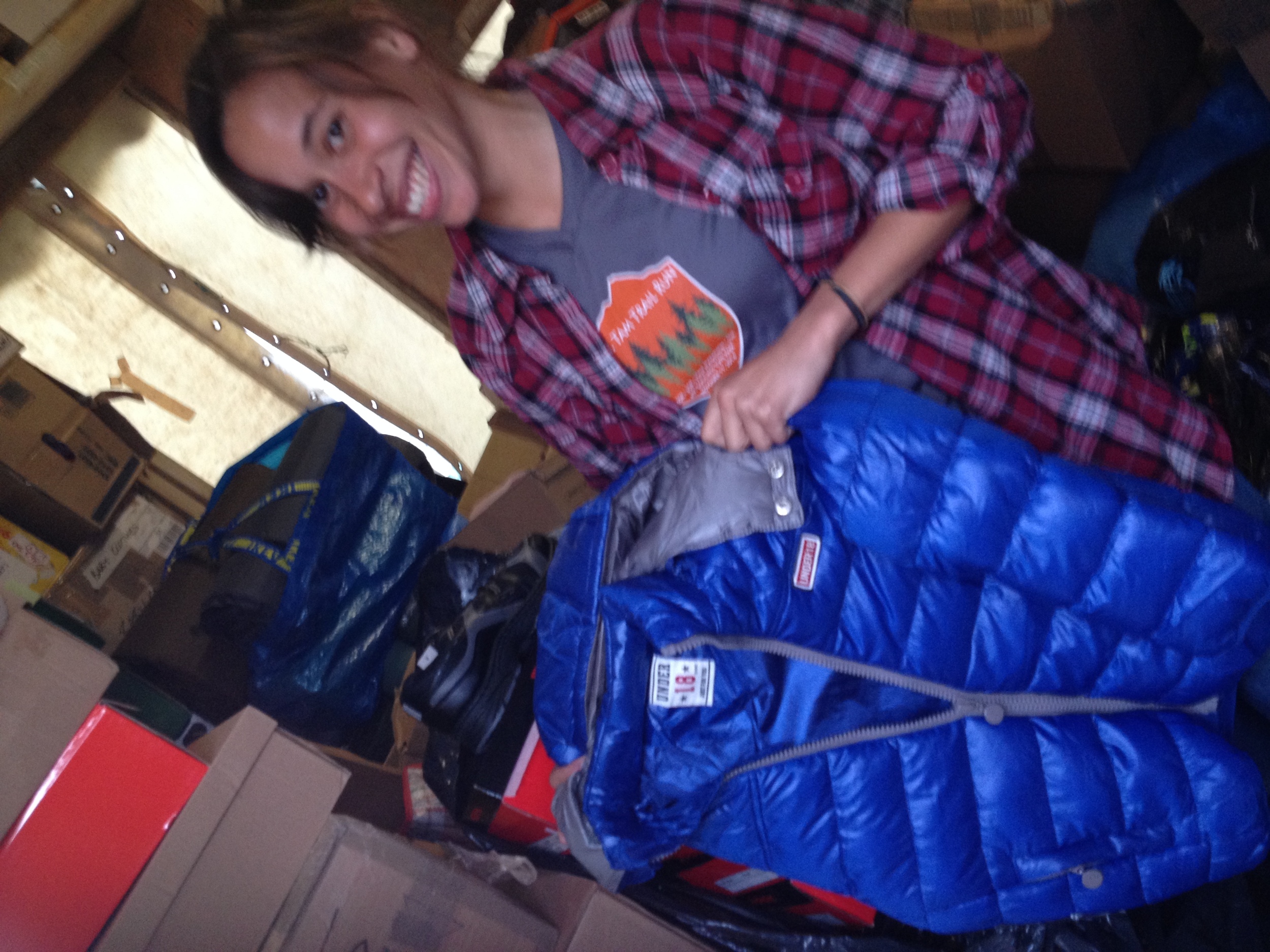
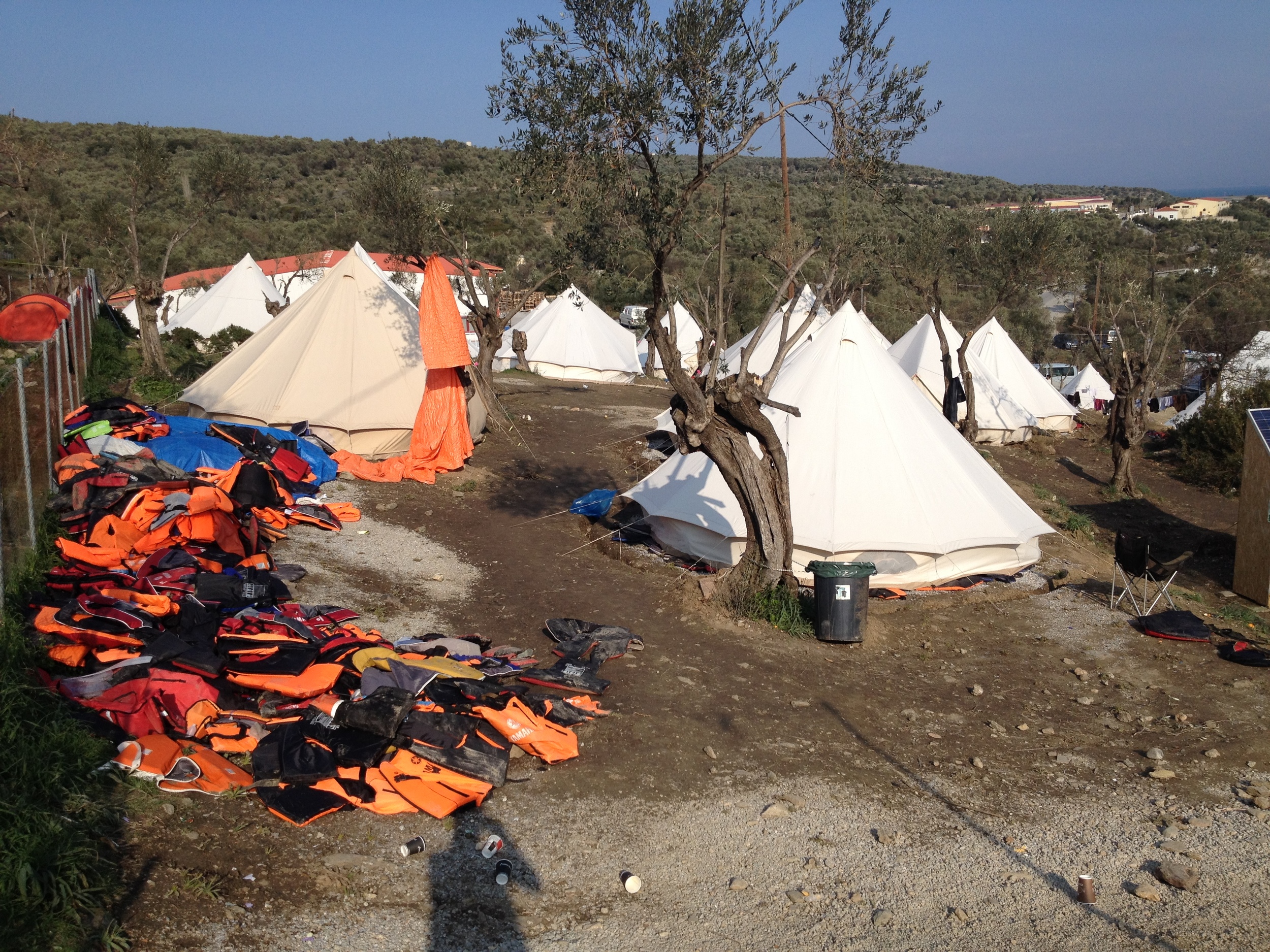
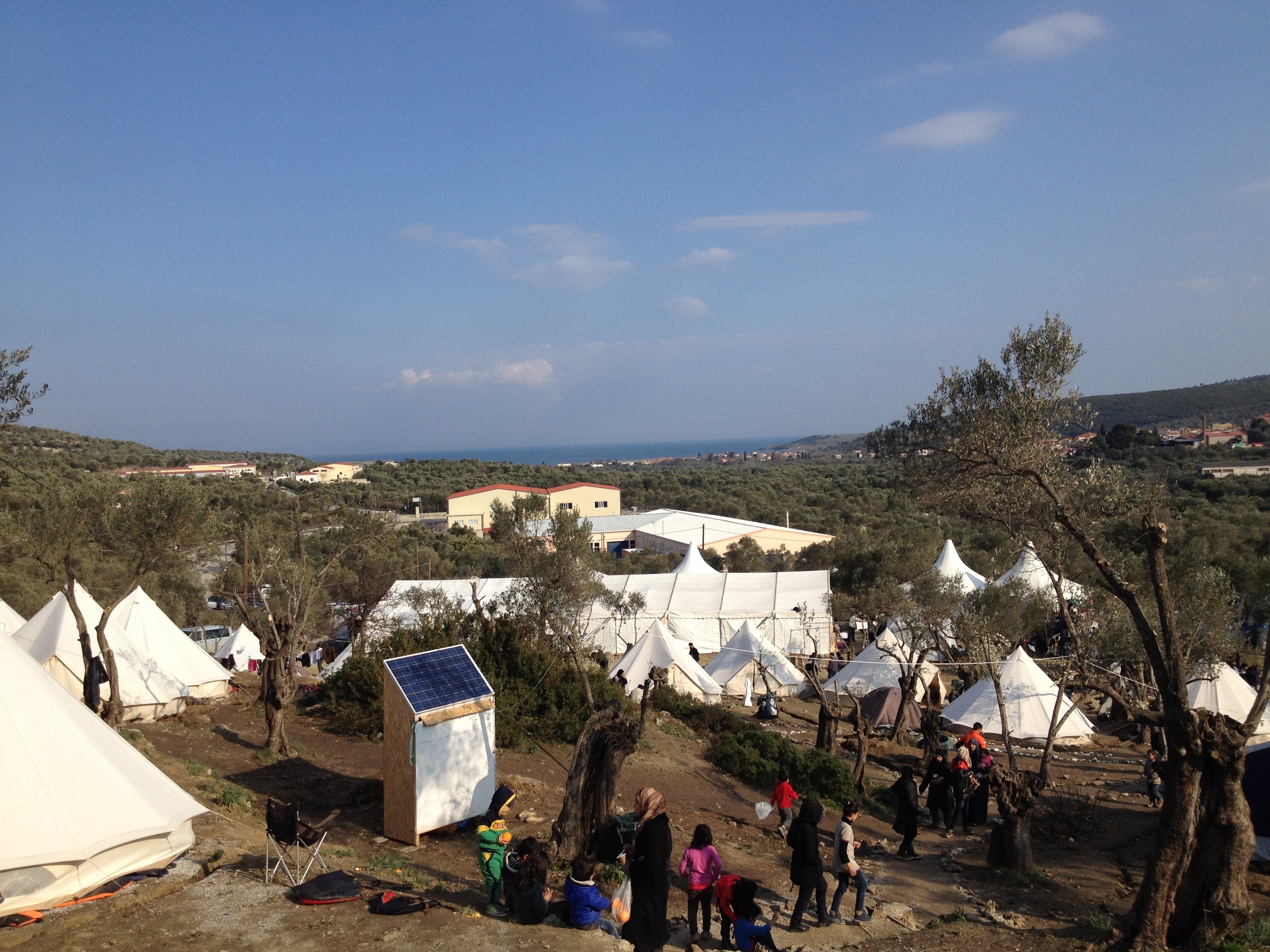 When I first arrived at Moria Camp I knew that I wanted to use my Arabic skills as much as possible to help out. However, I intentionally avoided the medical tent because I was afraid that a bad translation could potentially harm someone. But the longer I've been here, the more word of my being "an Arabic translator" has spread. I have to laugh at that, because I'm definitely not a translator. When I'm speaking with people in Arabic I usually have to ask them to repeat themselves a lot, and then I infer a lot based on whatever context we're in. It's a lot of guessing, and I definitely don't always know what's going on.
When I first arrived at Moria Camp I knew that I wanted to use my Arabic skills as much as possible to help out. However, I intentionally avoided the medical tent because I was afraid that a bad translation could potentially harm someone. But the longer I've been here, the more word of my being "an Arabic translator" has spread. I have to laugh at that, because I'm definitely not a translator. When I'm speaking with people in Arabic I usually have to ask them to repeat themselves a lot, and then I infer a lot based on whatever context we're in. It's a lot of guessing, and I definitely don't always know what's going on.